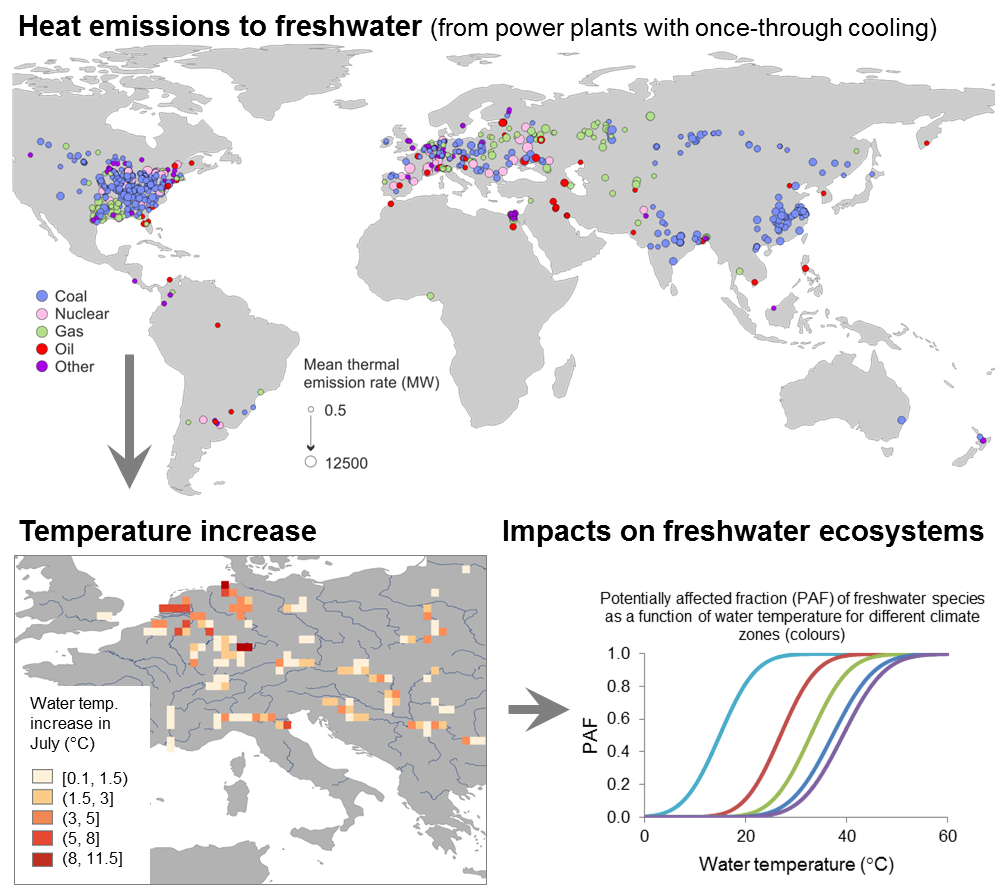Quantifying the emissions and environmental impacts from thermoelectric power plants globally
The impacts on ecosystem quality and human health caused by the thermoelectric power sector are numerous, bearing on local and global scales. The overarching aim of this project is to build a comprehensive georeferenced database of thermoelectric power plants and their emissions that will enable the comprehensive (bottom-up), spatially-explicit assessment of the environmental pressures due to power generation.
Based on existing global power plant databases, the work of the Ecological Systems Design group focuses on the following aspects:
- Georeferencing and populating gaps in technical information data of individual generating units; the latter is carried out either via the matching of different databases, or via regression models of relationships between thermodynamic parameters.
- Expanding the database with emission data based on the outcomes of unit by unit thermodynamic cycle solutions.
- Modelling the impact pathway, in essence ‘translating’ the emissions to quantifiable impacts on ecosystem quality or on human health.
So far the group has modelled the heat emissions entering freshwater bodies from all power plants with once-through cooling systems worldwide, and produced a high resolution image of the thermal pollution impacts. The group has identified hotspots of freshwater thermal pollution and have analysed the impacts in terms of technological, geographical and temporal characteristics external page (Raptis & Pfister 2016). In the following steps the Ecological Systems Design group will expand the data regarding emission and degradative processes by modelling emissions to air and water consumption, all on an individual power plant level. When complete, this expanded database will enable a plethora of regionalized studies with global coverage, ranging from water-energy nexus studies to prospective analyses of future energy supply, with a great level of detail that has been lacking so far. A direct result will be a more reliable assessment of potential environmental impacts caused by power production in different regions.
The ESC member involved in this project is Prof. Stefanie Hellweg, head of the Ecological Systems Design group, whose research focus is to model, evaluate and improve the resource efficiency and environmental performance of products and processes, new technologies, and consumption patterns. Further information and publications from the global power production project can be found here
